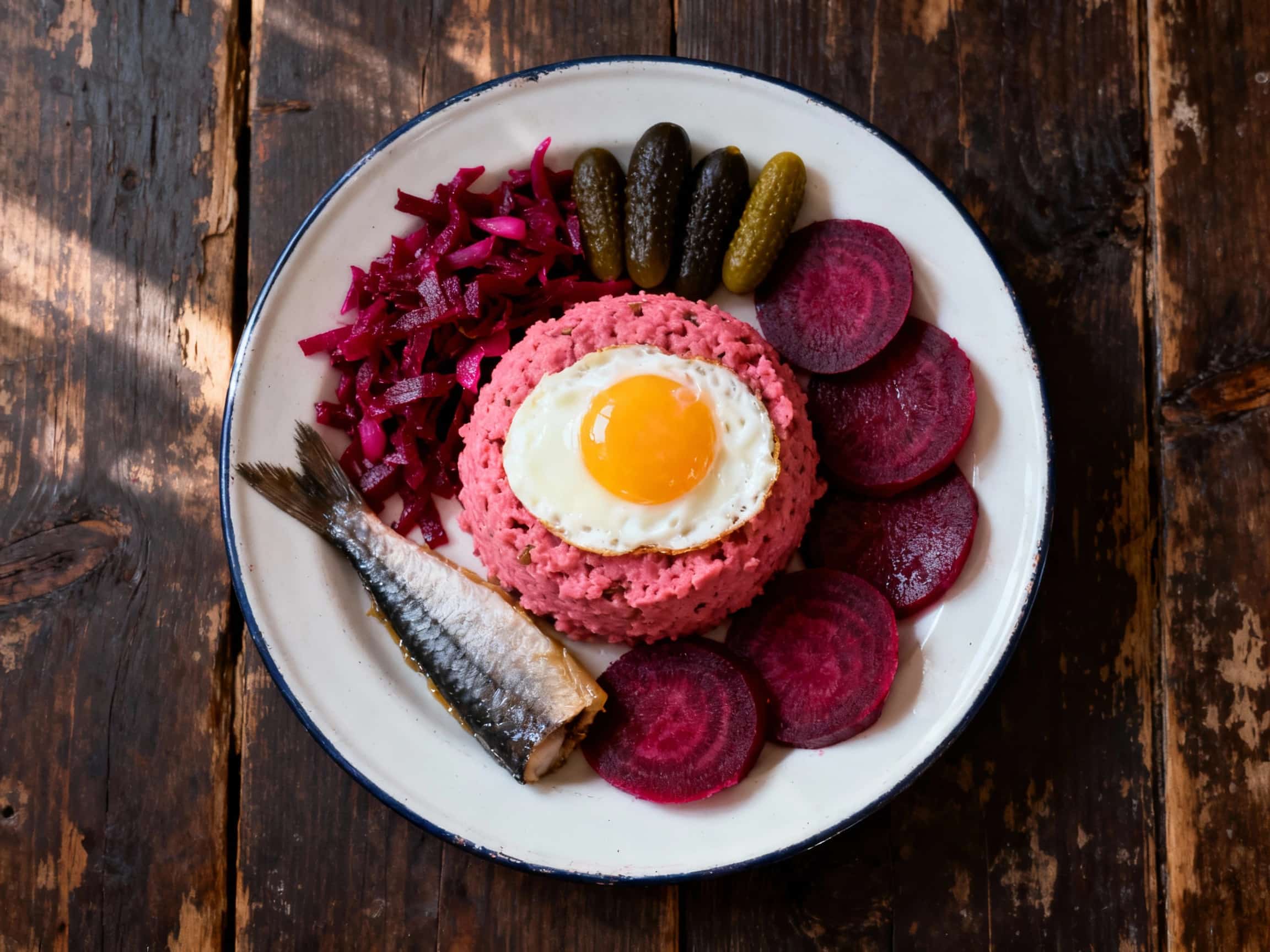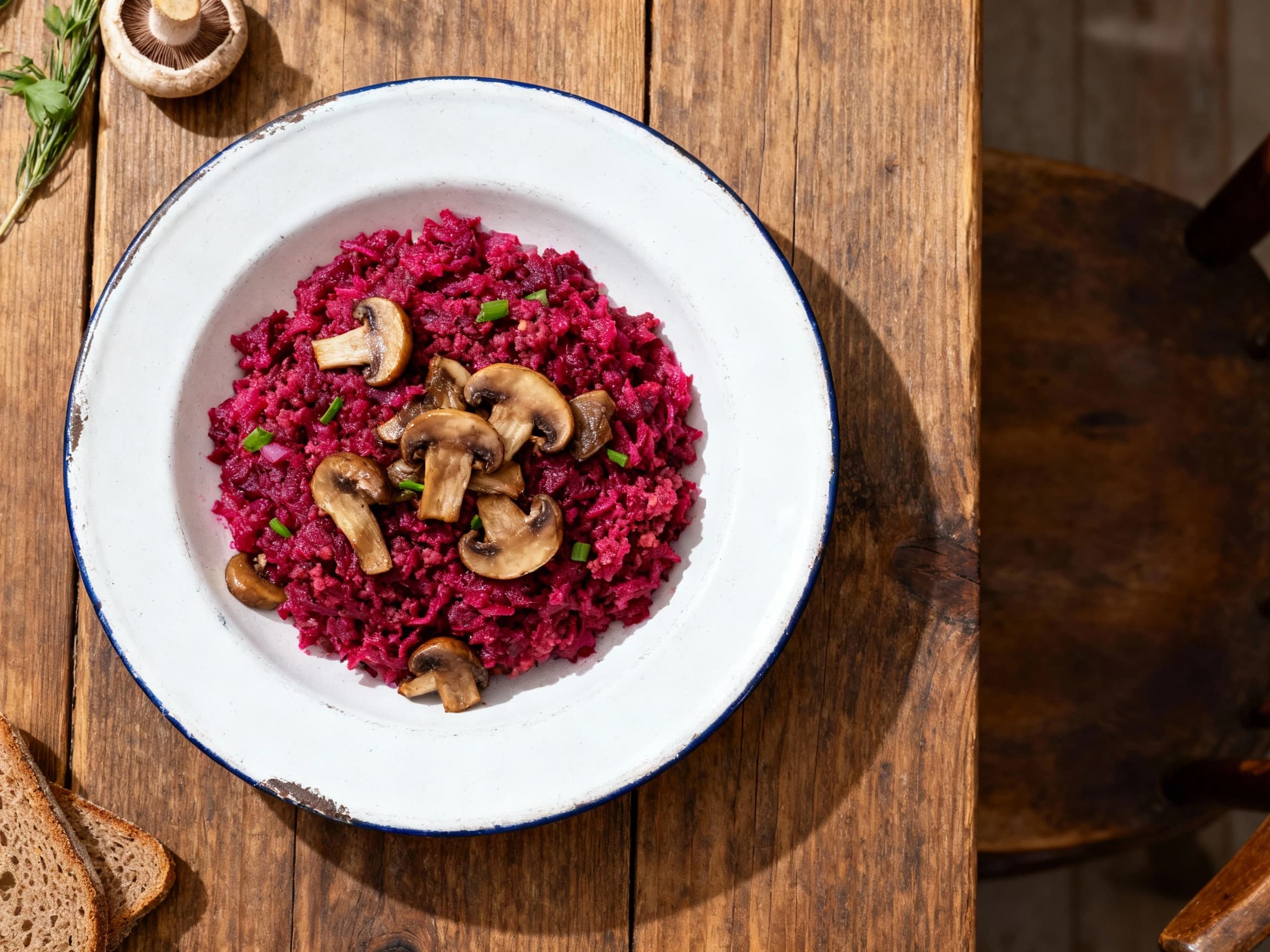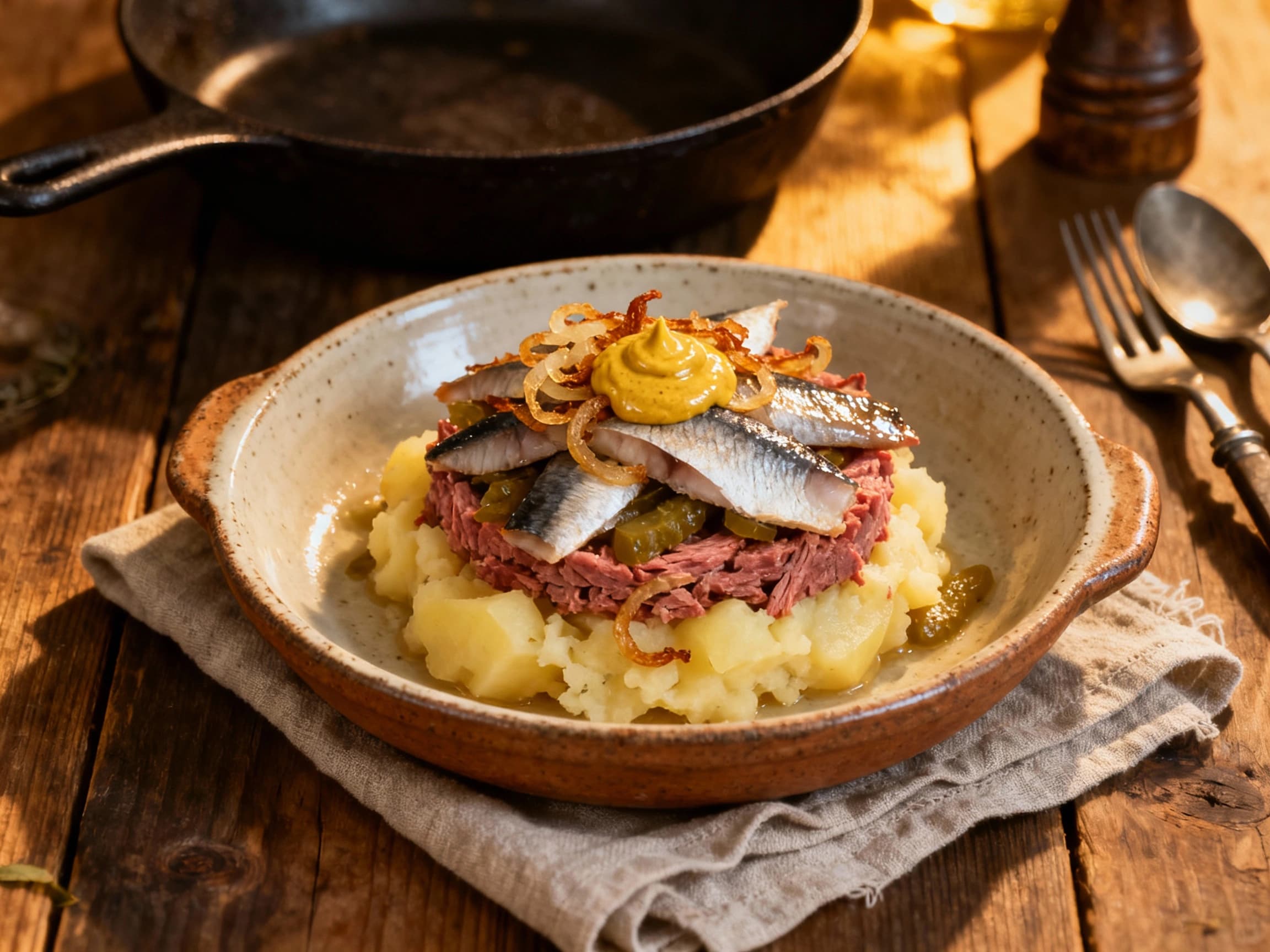
Labskaus
Labskaus
- Country
- Germany
- Region
- Northern Germany
- Recipes
- 3 Recipes
Origins & Characteristics of Labskaus
Labskaus is a hearty and historically significant dish hailing from the northern coastal regions of Germany, particularly associated with sailors and maritime life in areas like Hamburg, Bremen, and Schleswig-Holstein. Its distinctive appearance—a pinkish-red, mashed mixture—belies its complex and savory flavor. The traditional preparation involves corned beef, potatoes, and onions, all mashed together, then often fried with a bit of fat. Its origins are deeply rooted in the age of sail, where preserved ingredients were essential for long voyages. Sailors would combine these ingredients to create a filling and energy-rich meal, the saltiness from the corned beef helping to preserve it. Over time, the dish evolved from a simple sailor's ration into a regional delicacy, with local variations emerging. For example, while some versions omit herring, others include it, and it's almost always served with specific accompaniments: a fried egg (often with a bright yellow yolk), pickled beetroot (Rote Bete) for color and acidity, and most crucially, sliced gherkins (cornichons) and pickled herring (Rollmops). This combination of textures and flavors—salty, sour, savory, and rich—is key to the Labskaus experience. The dish is a symbol of northern German identity and its connection to the sea, often enjoyed in traditional pubs and restaurants. Despite its potentially unusual appearance to the uninitiated, Labskaus remains a beloved and important part of the culinary heritage of the Hanseatic cities, representing resilience, resourcefulness, and the enduring traditions of seafaring life.
History of Labskaus
The concept of preserving meat and combining it with staples emerges in maritime diets.
Sailors on long voyages significantly rely on preserved corned beef and potatoes for sustenance.
Labskaus develops into a recognizable dish in port cities like Hamburg and Bremen.
Published recipes begin to document the preparation of Labskaus, including accompaniments.
Modern restaurants in Northern Germany firmly establish Labskaus as a regional specialty.
Culinary tourism helps reintroduce and popularize Labskaus to a wider audience.


